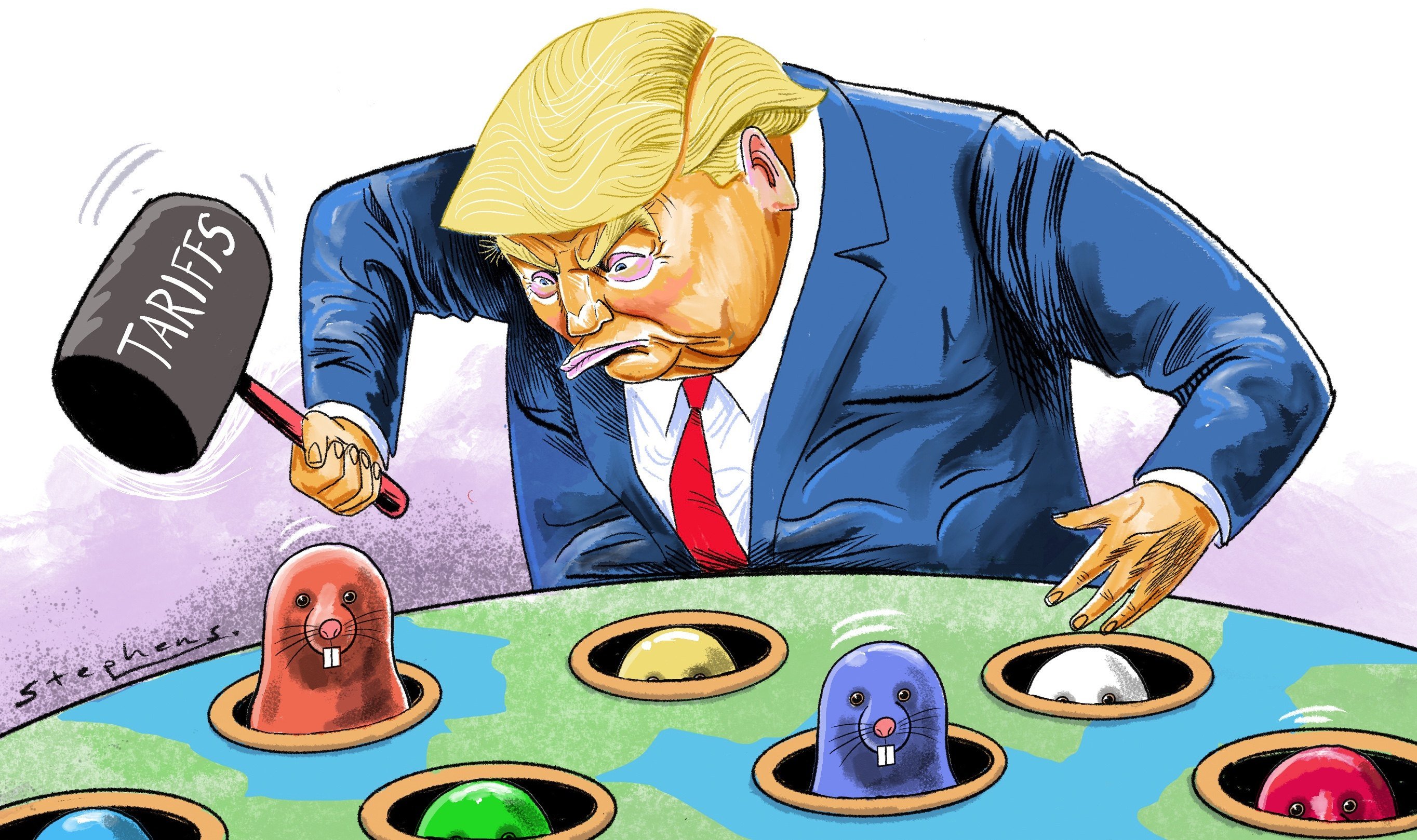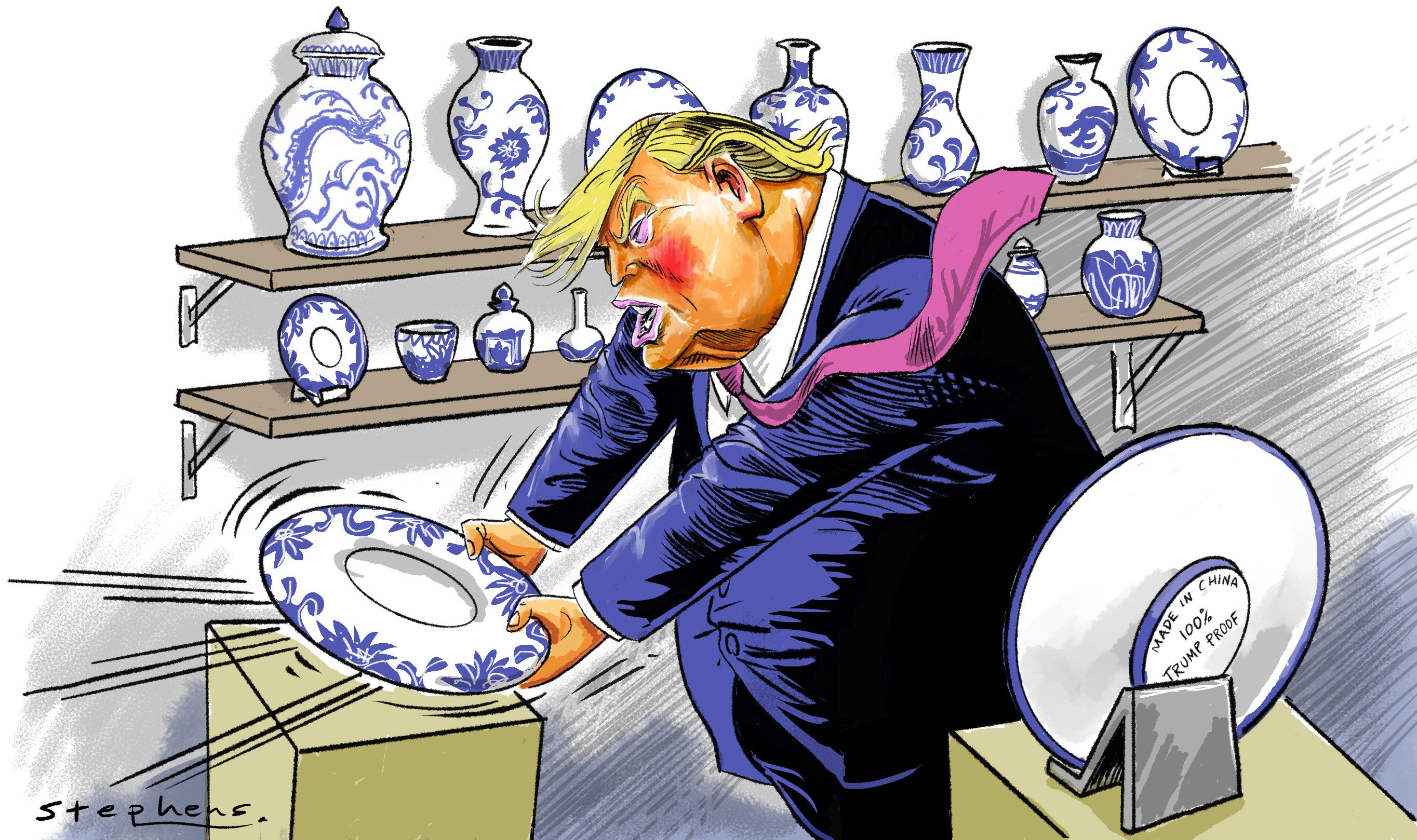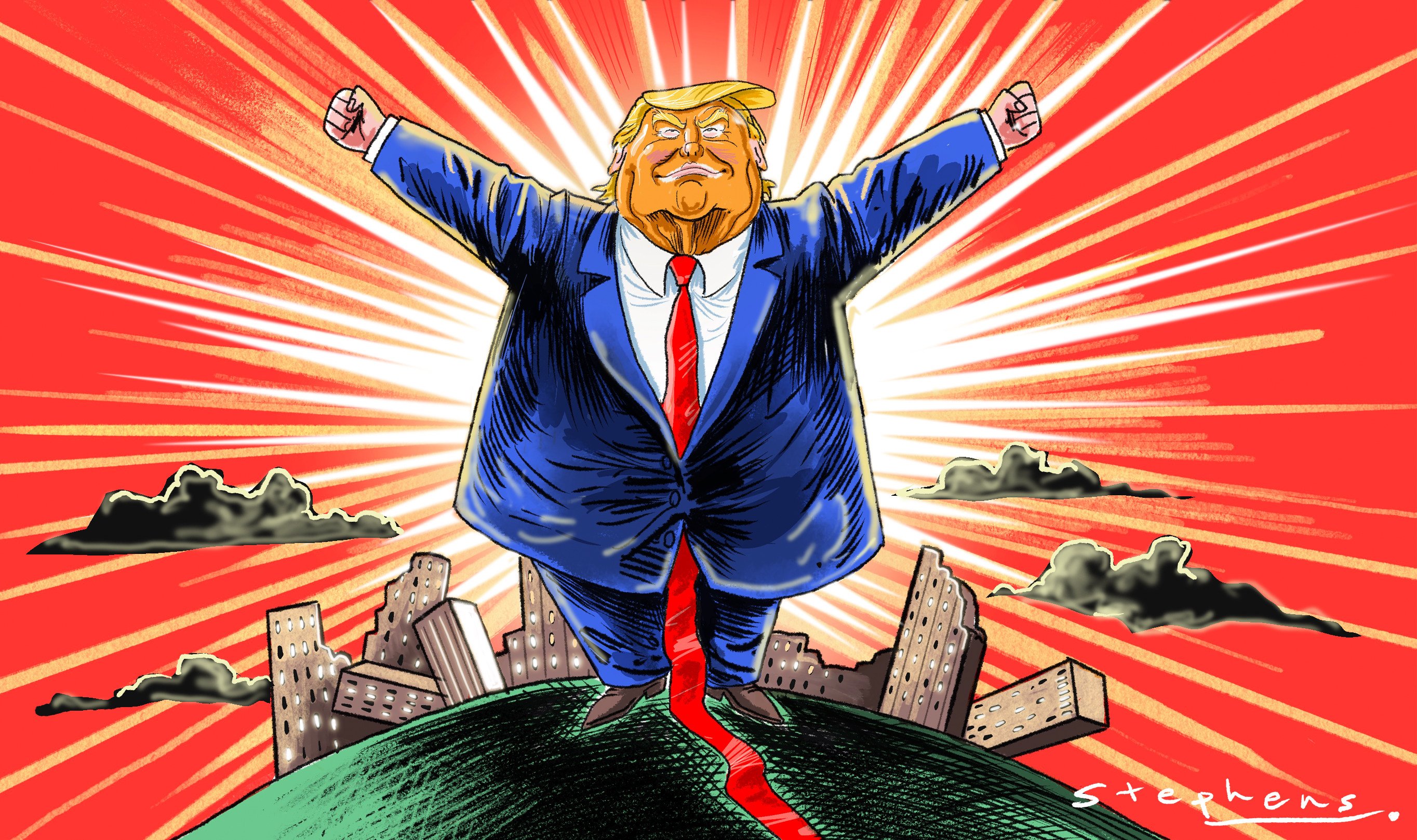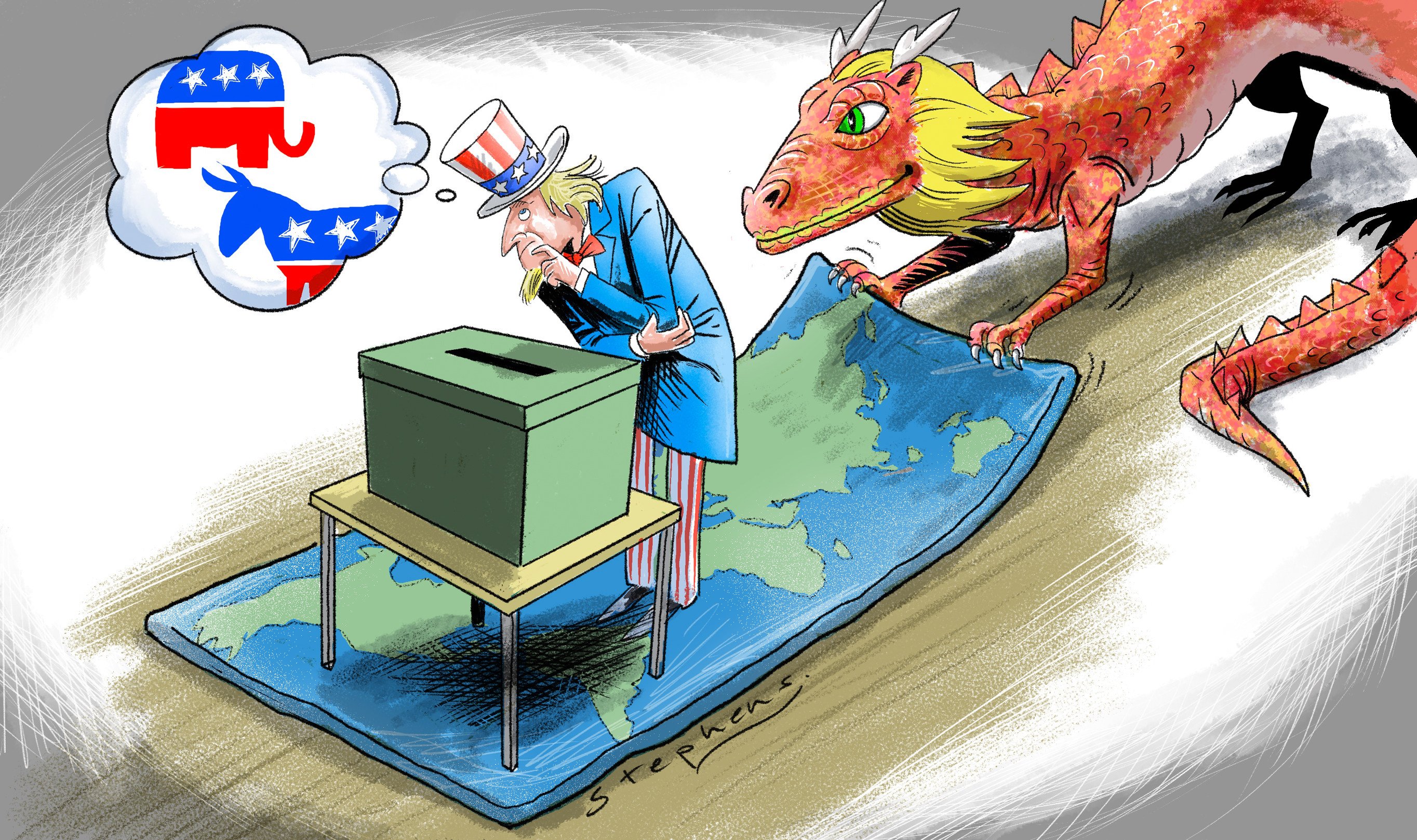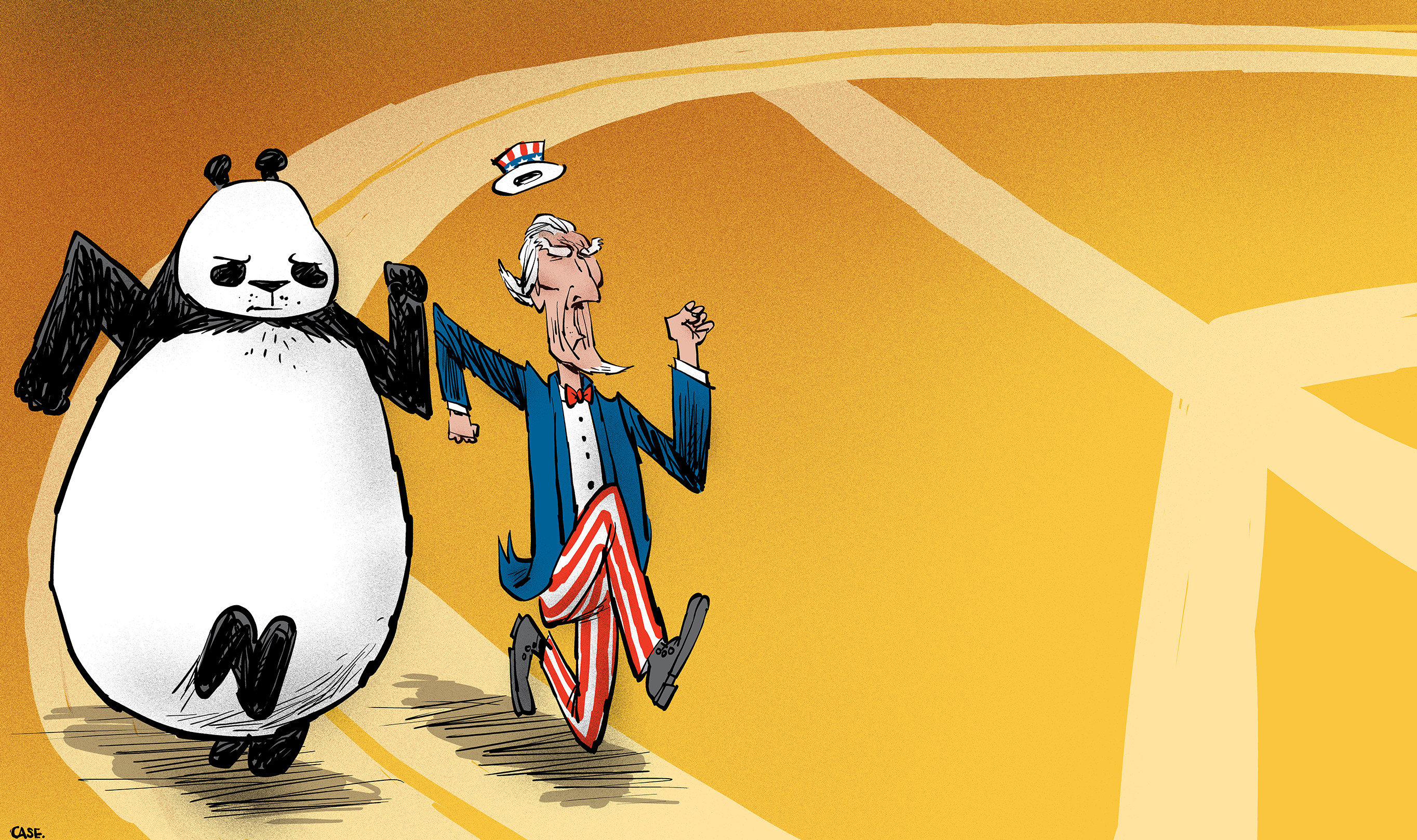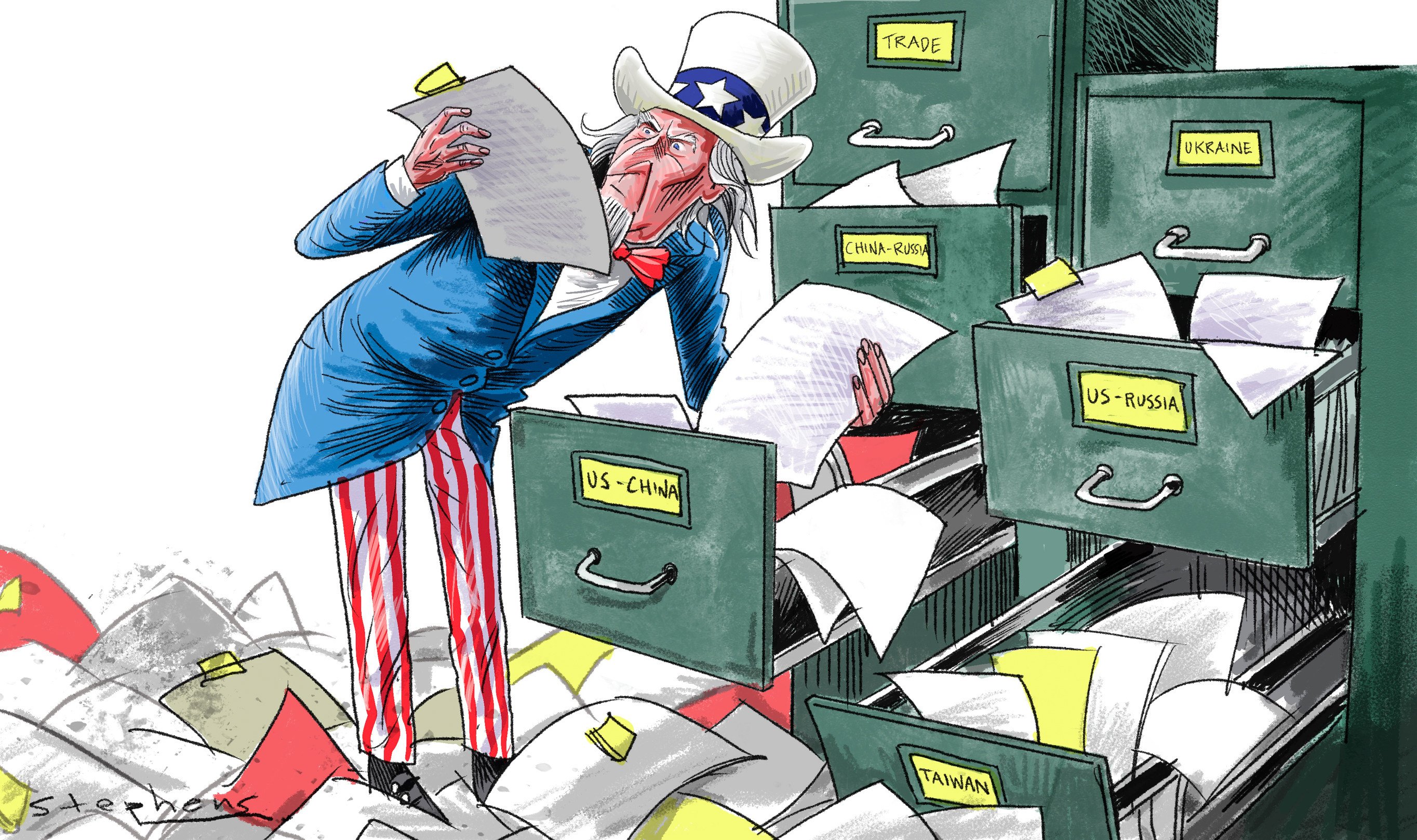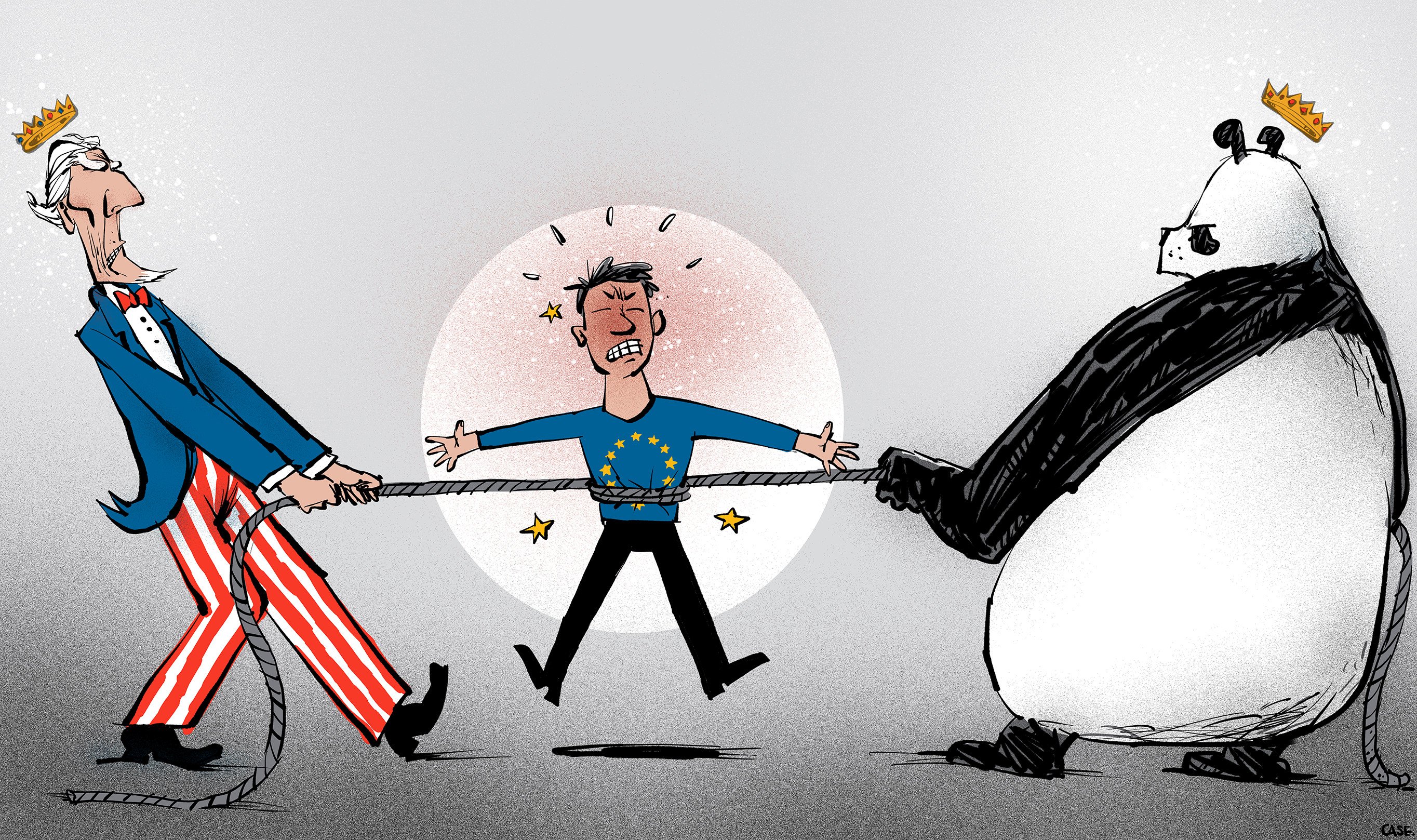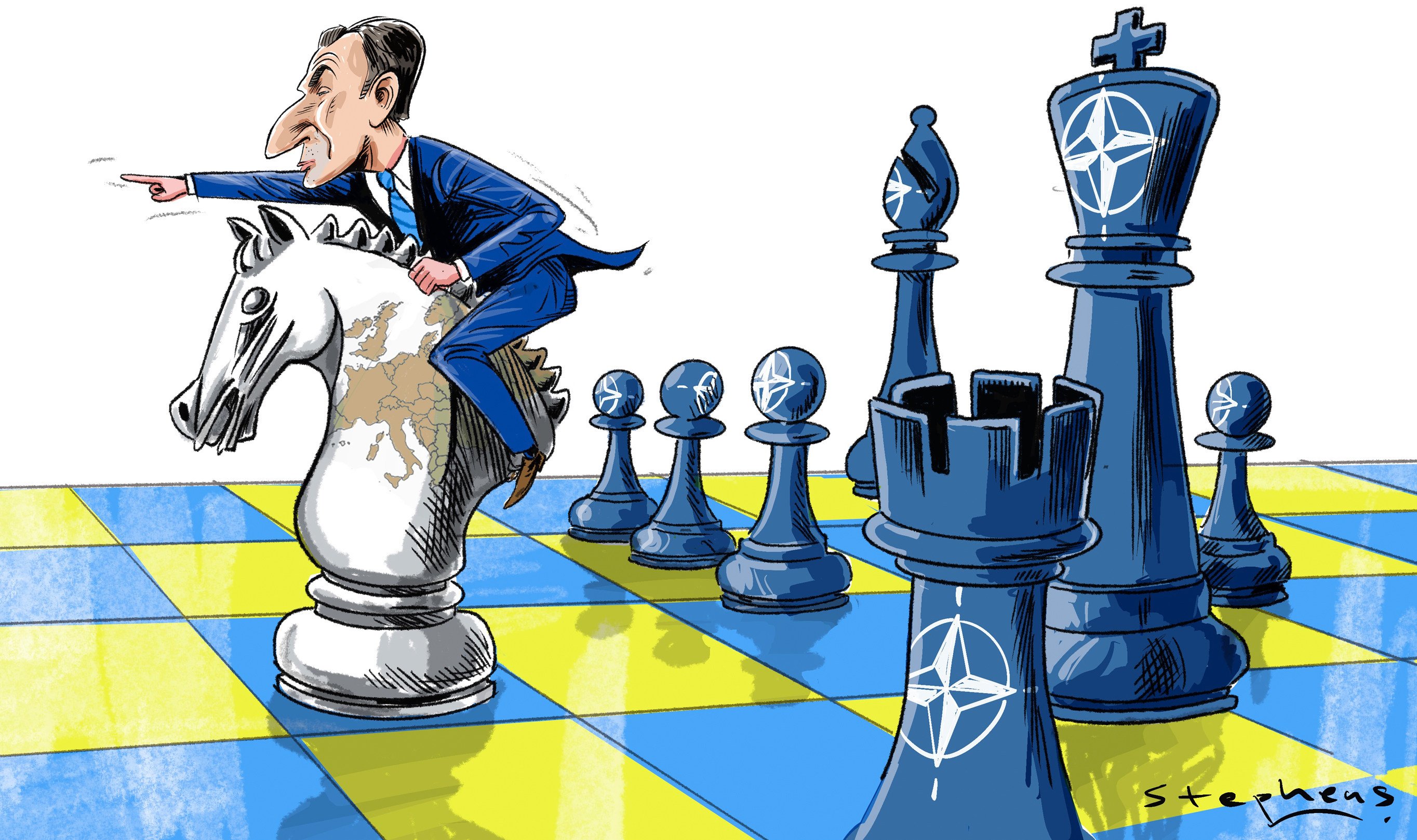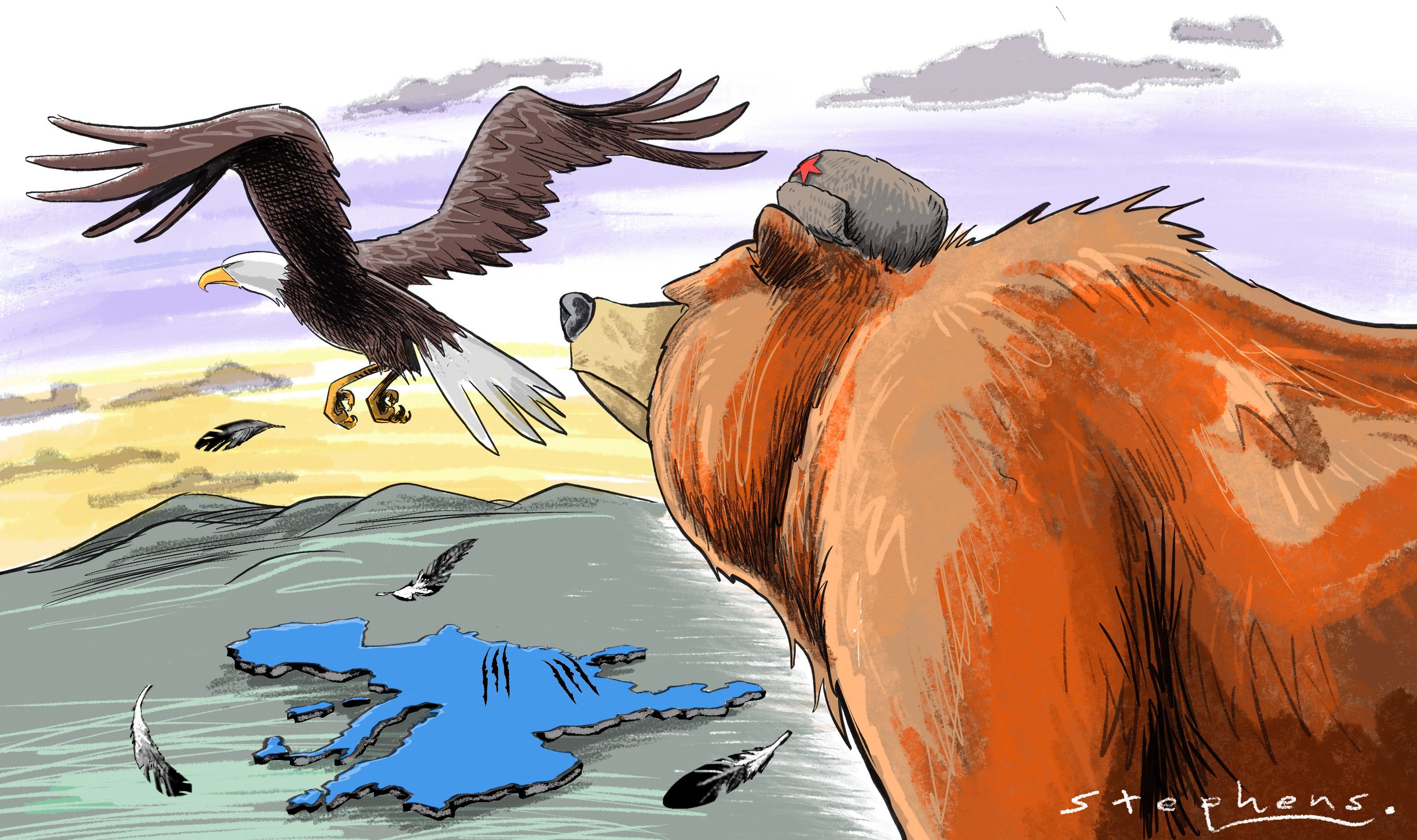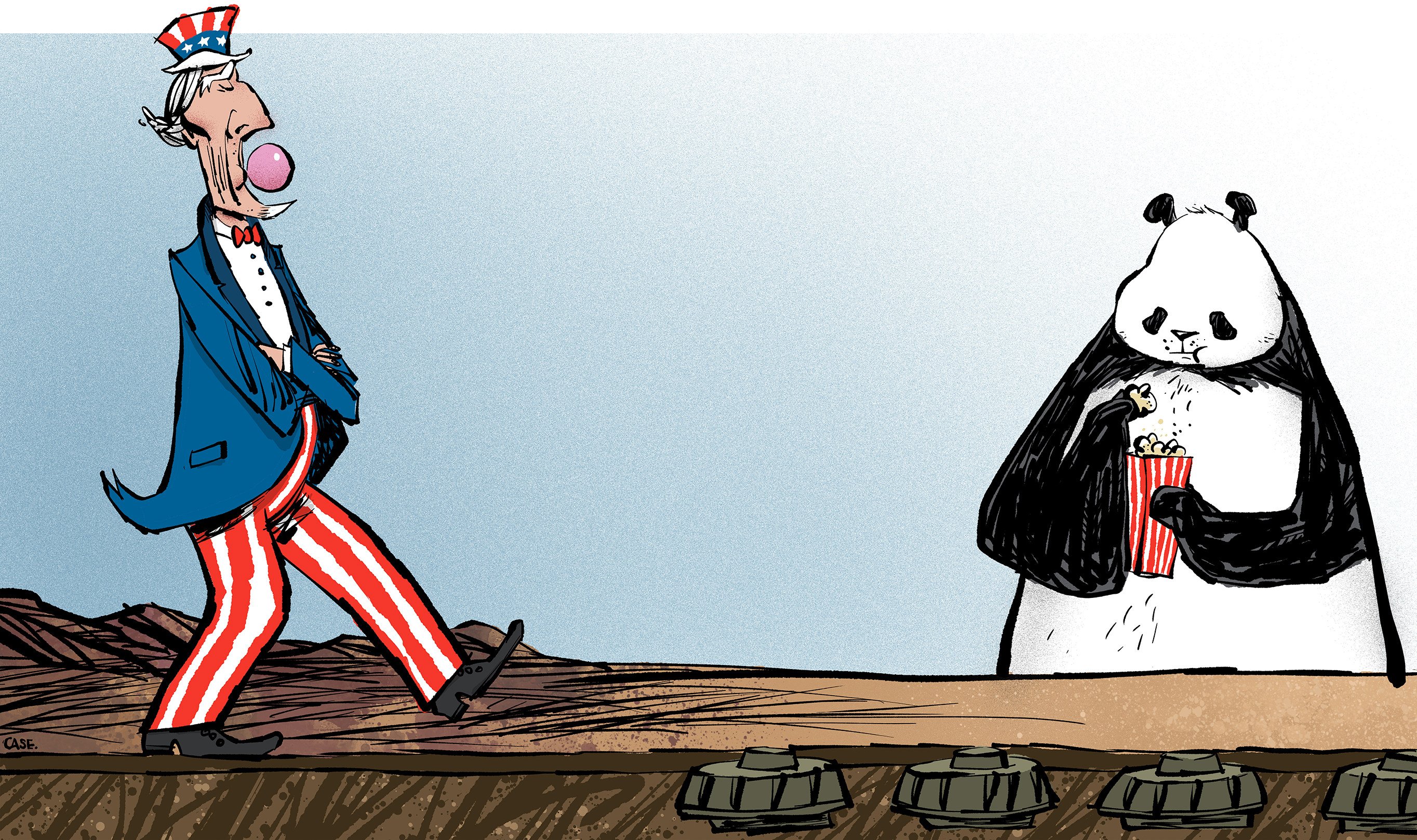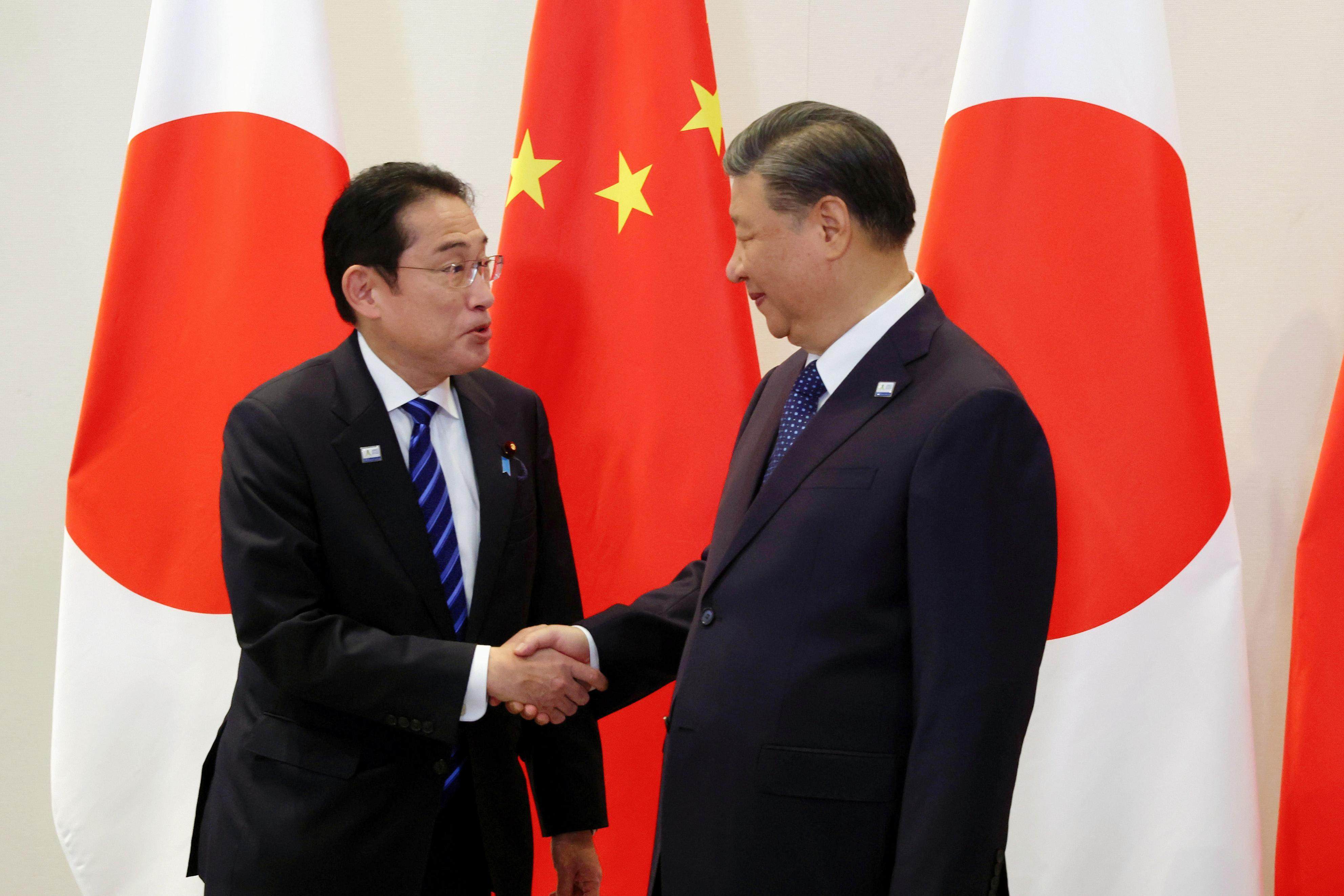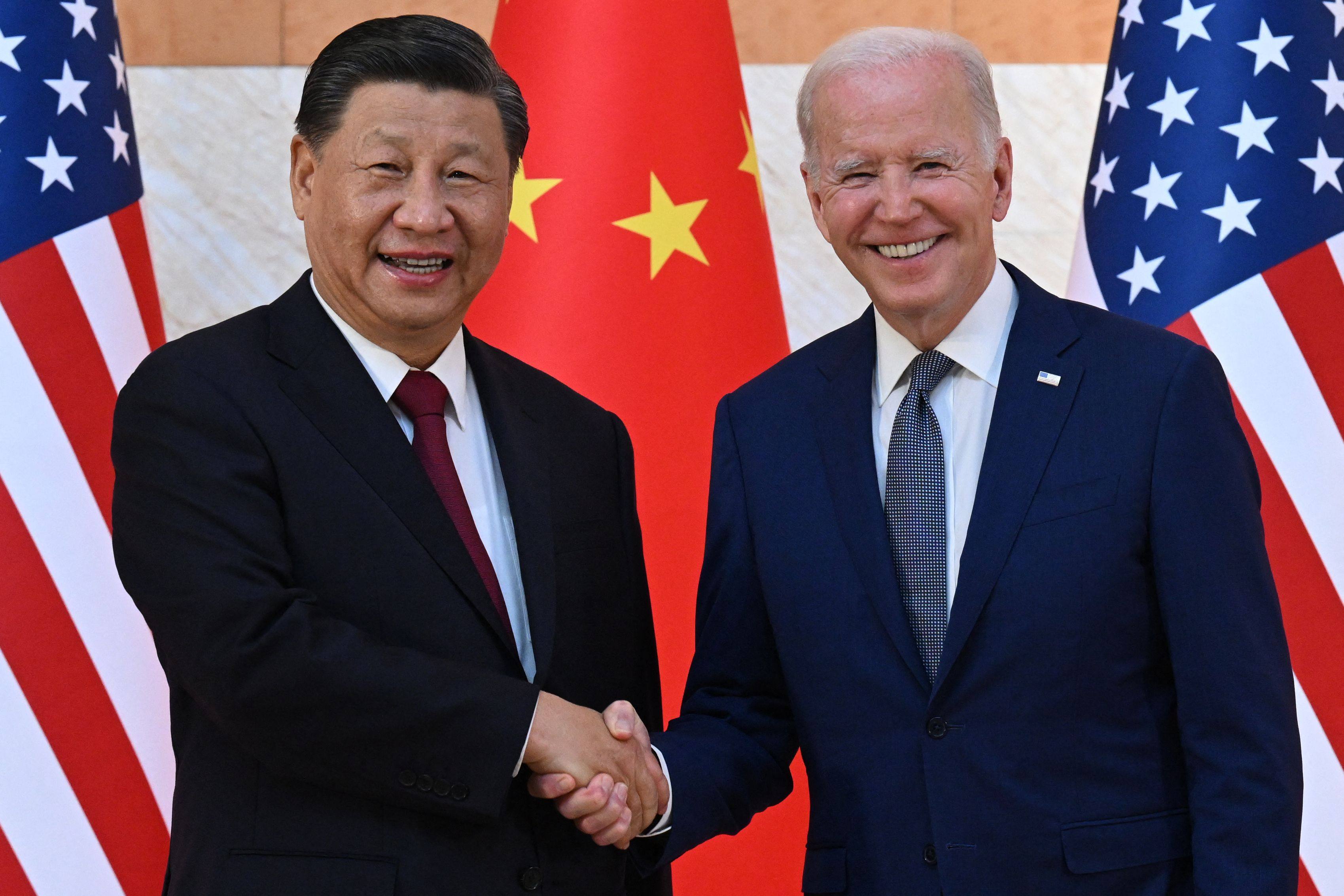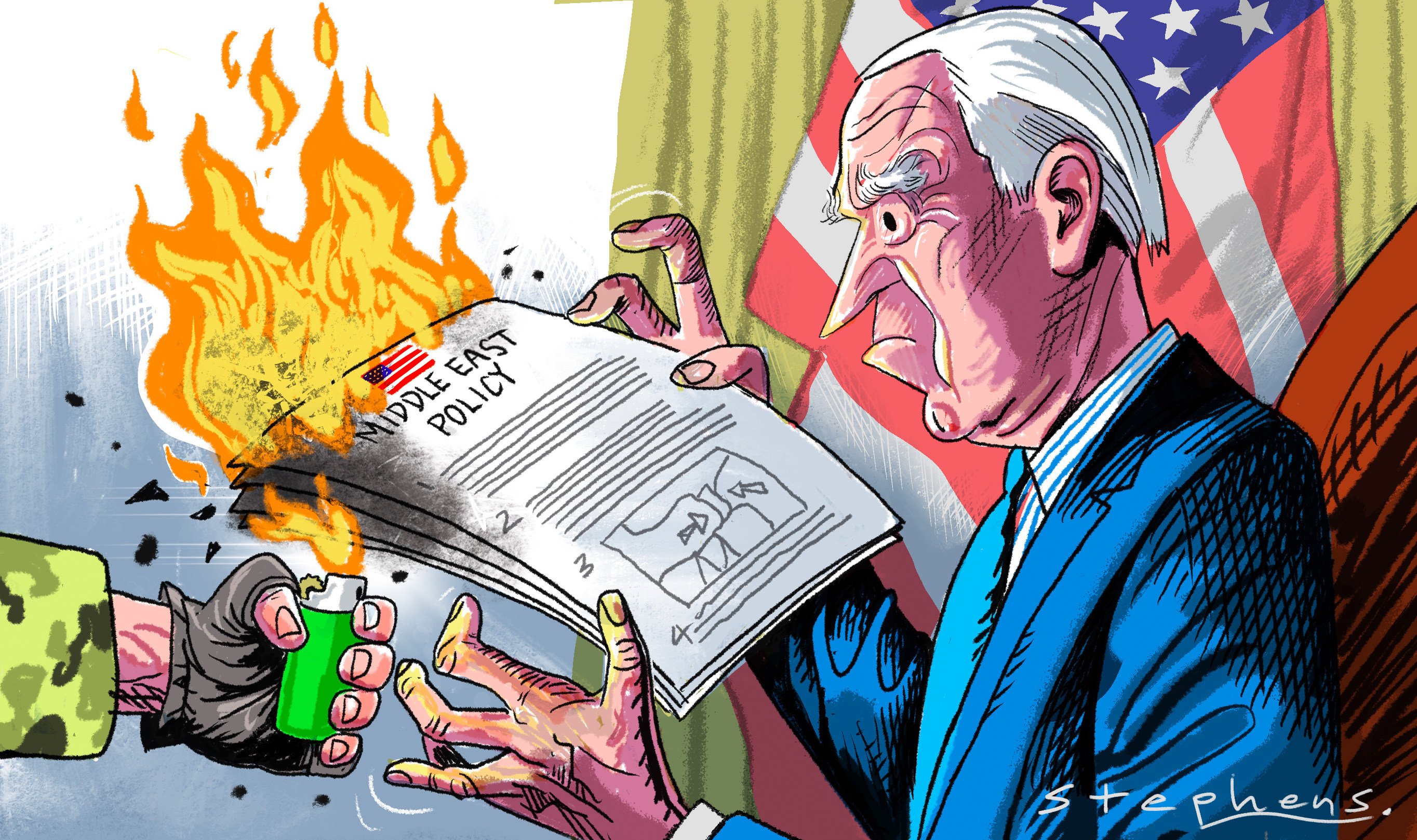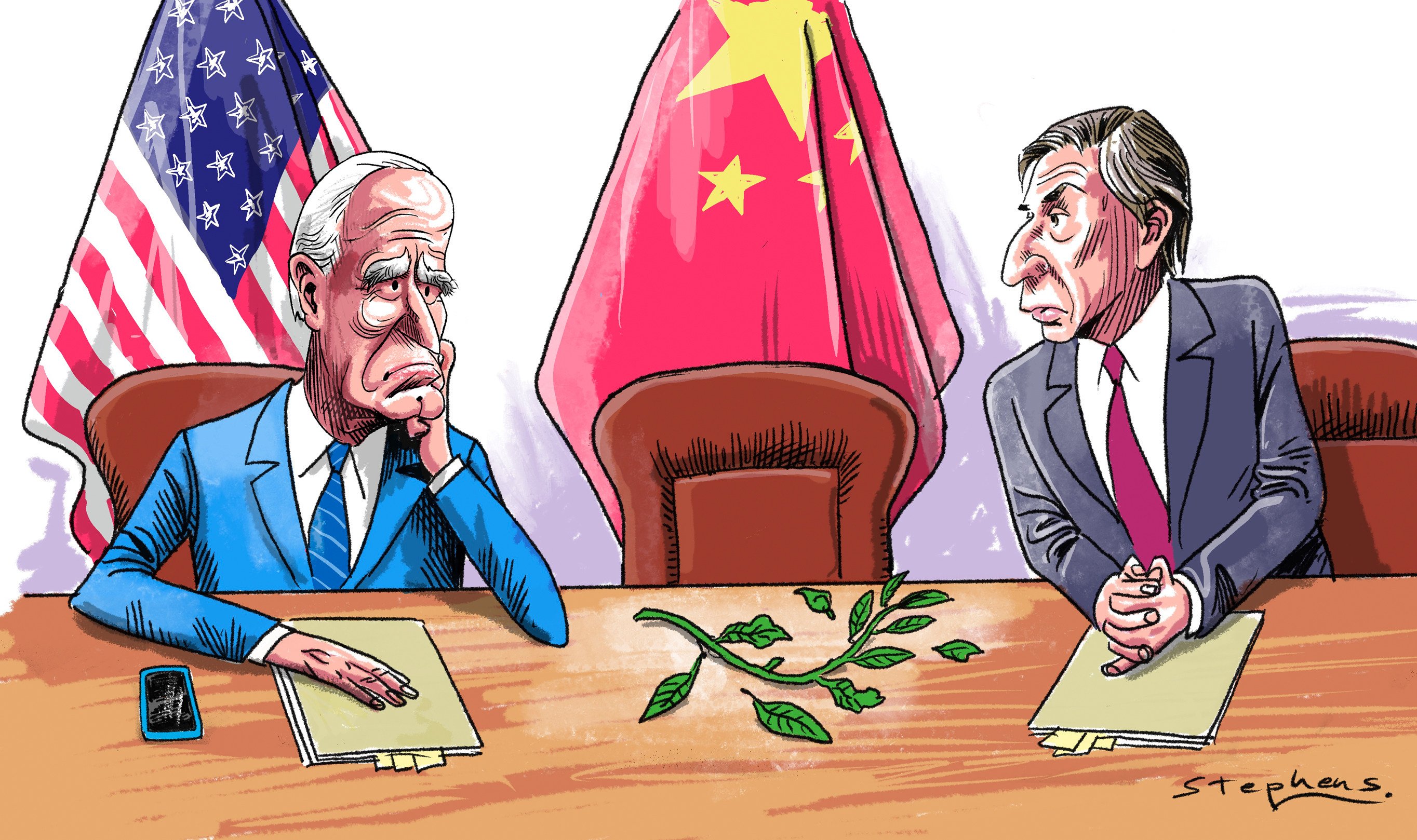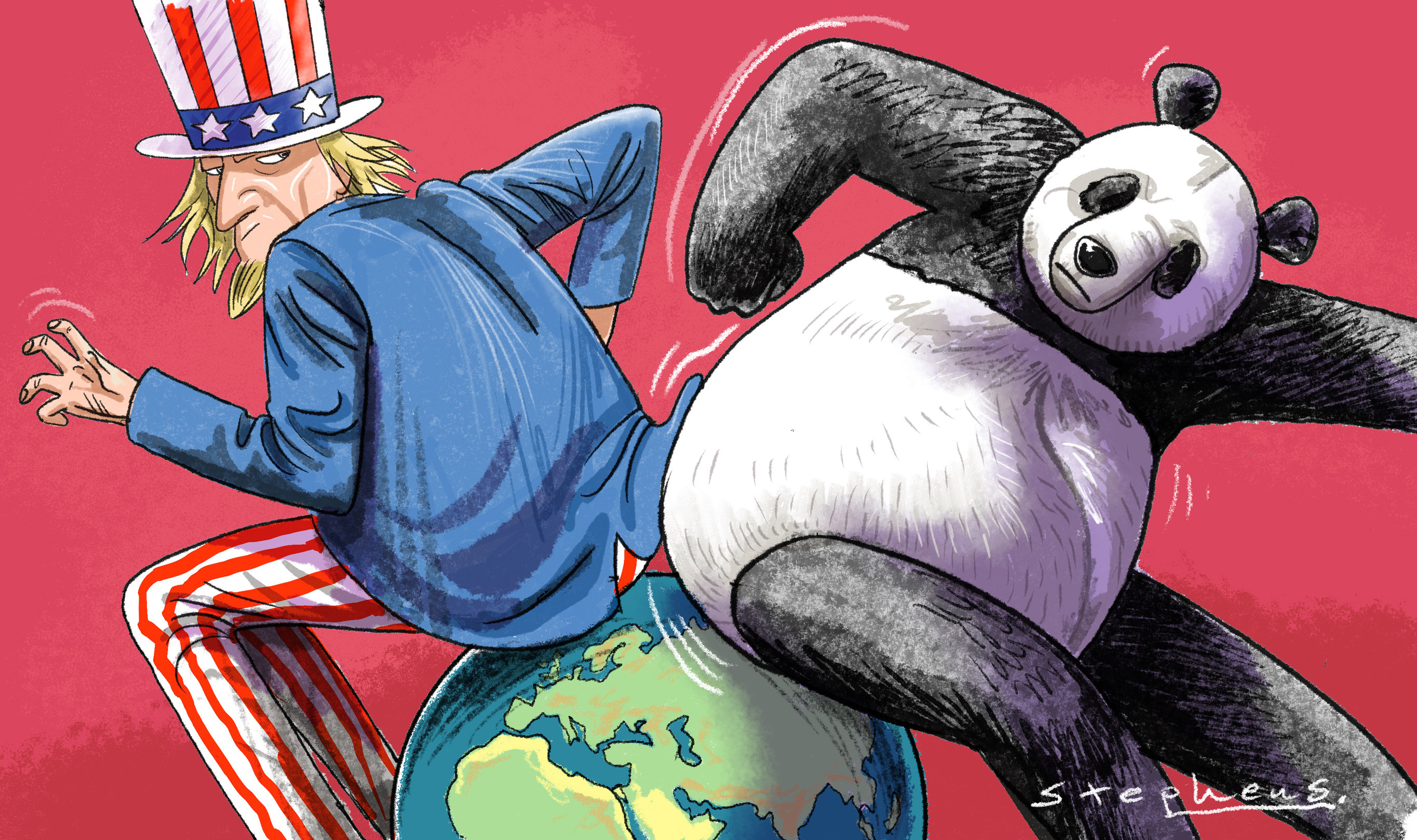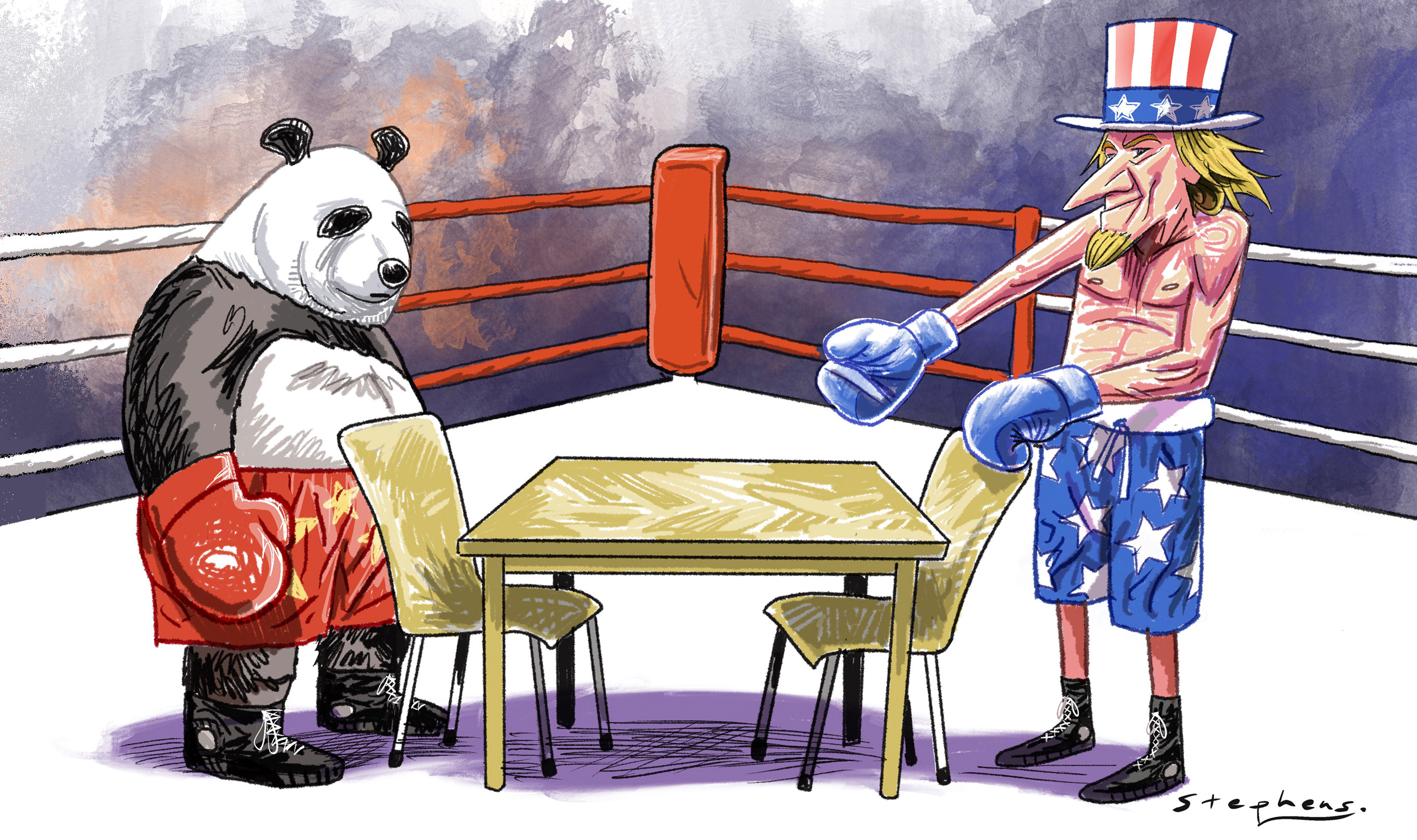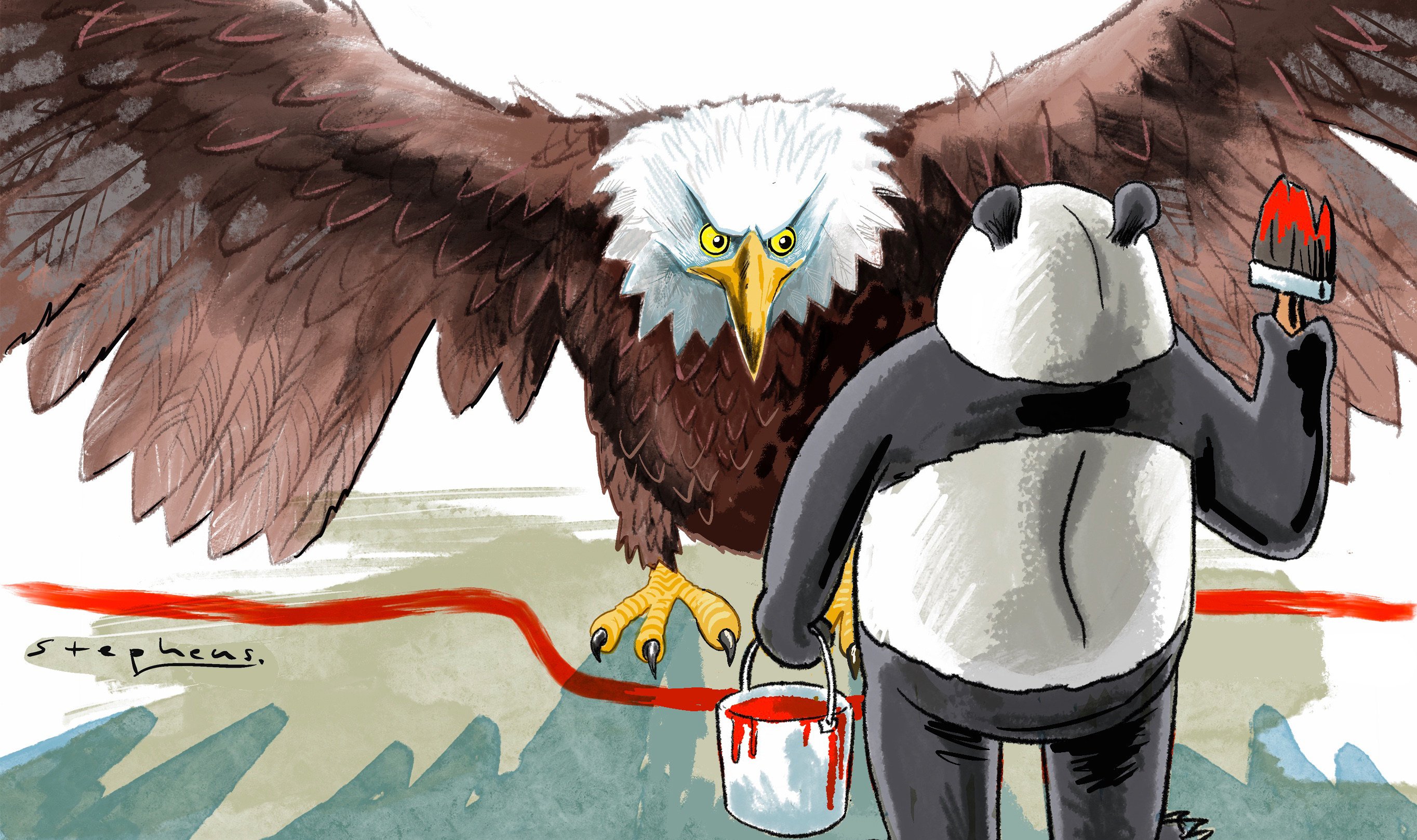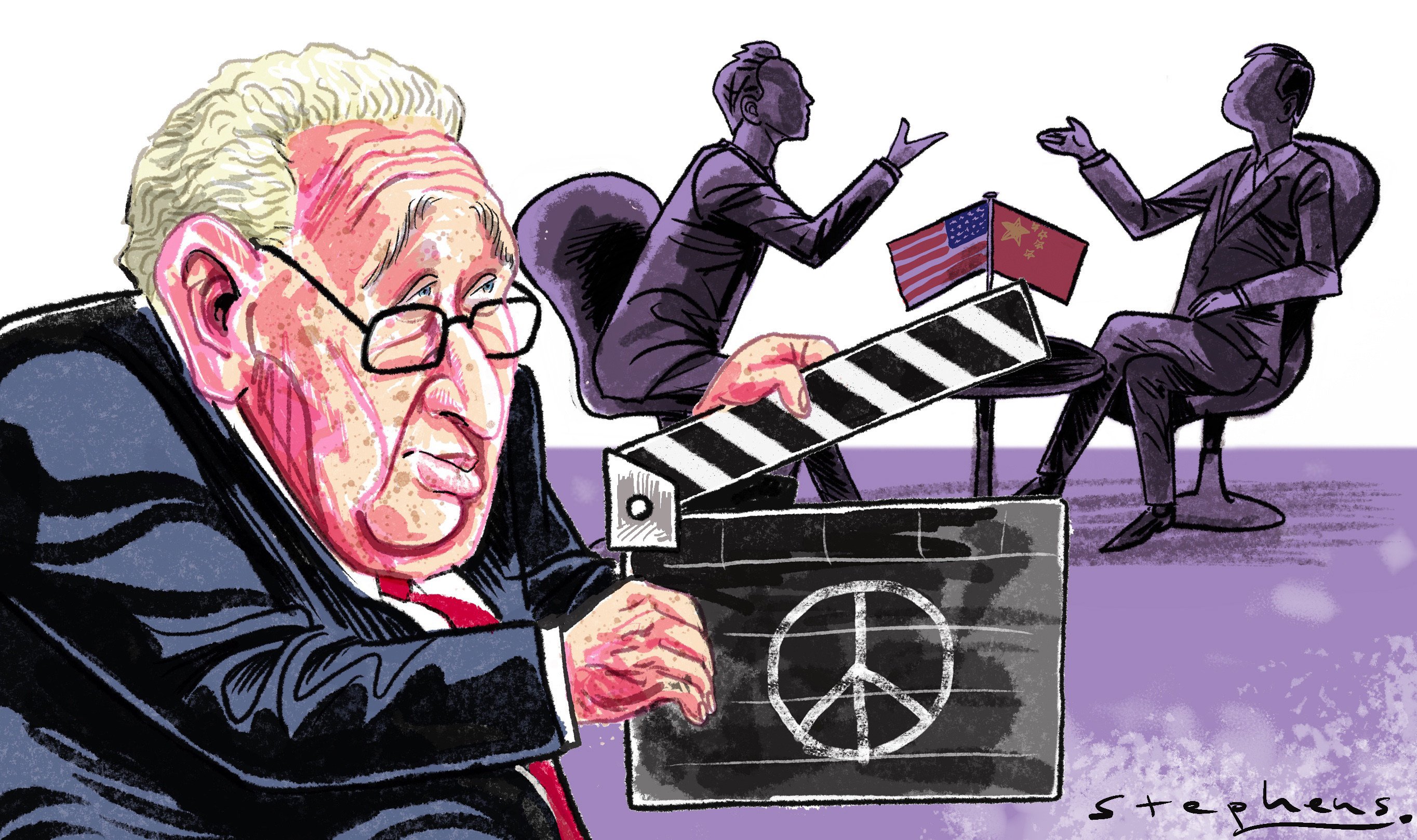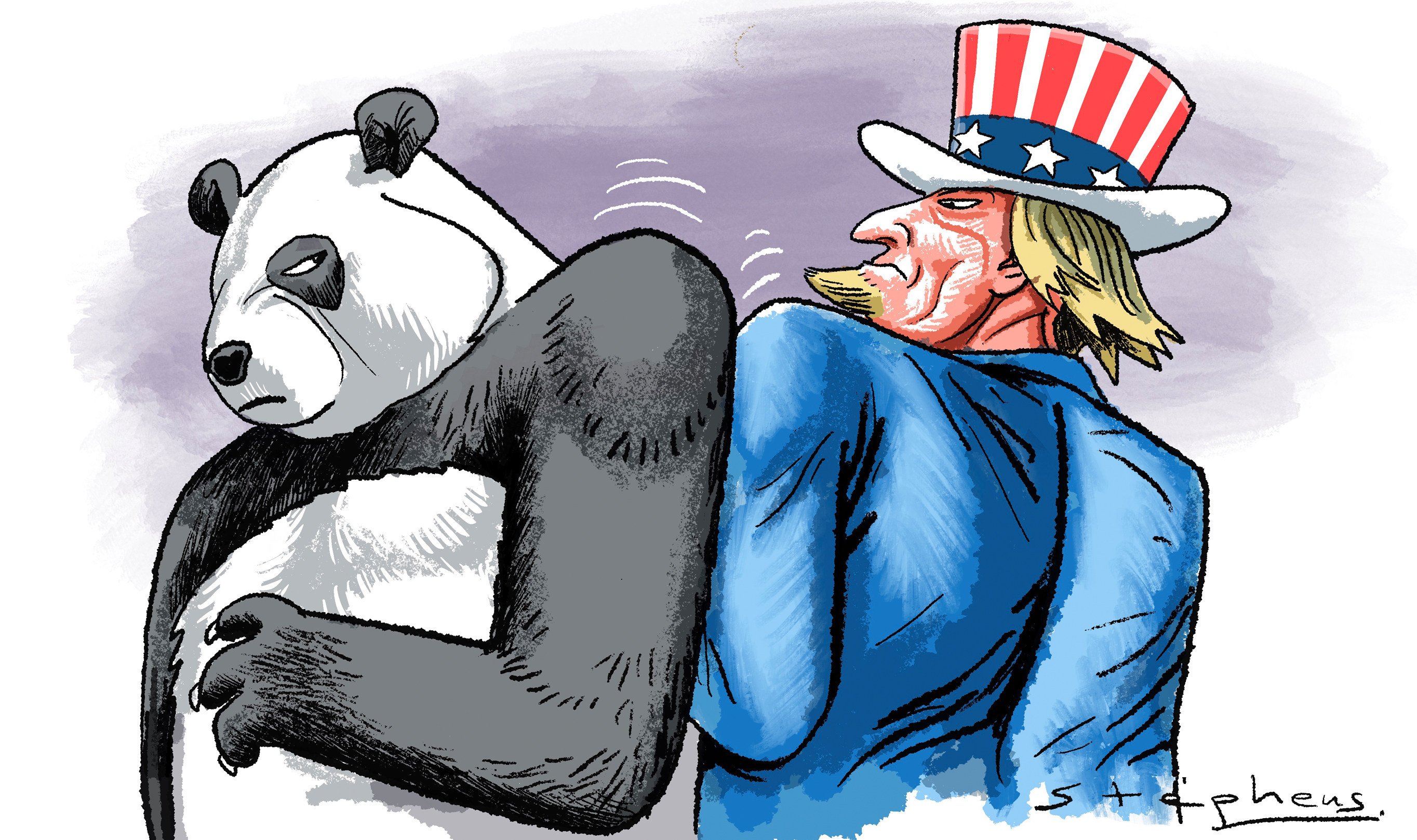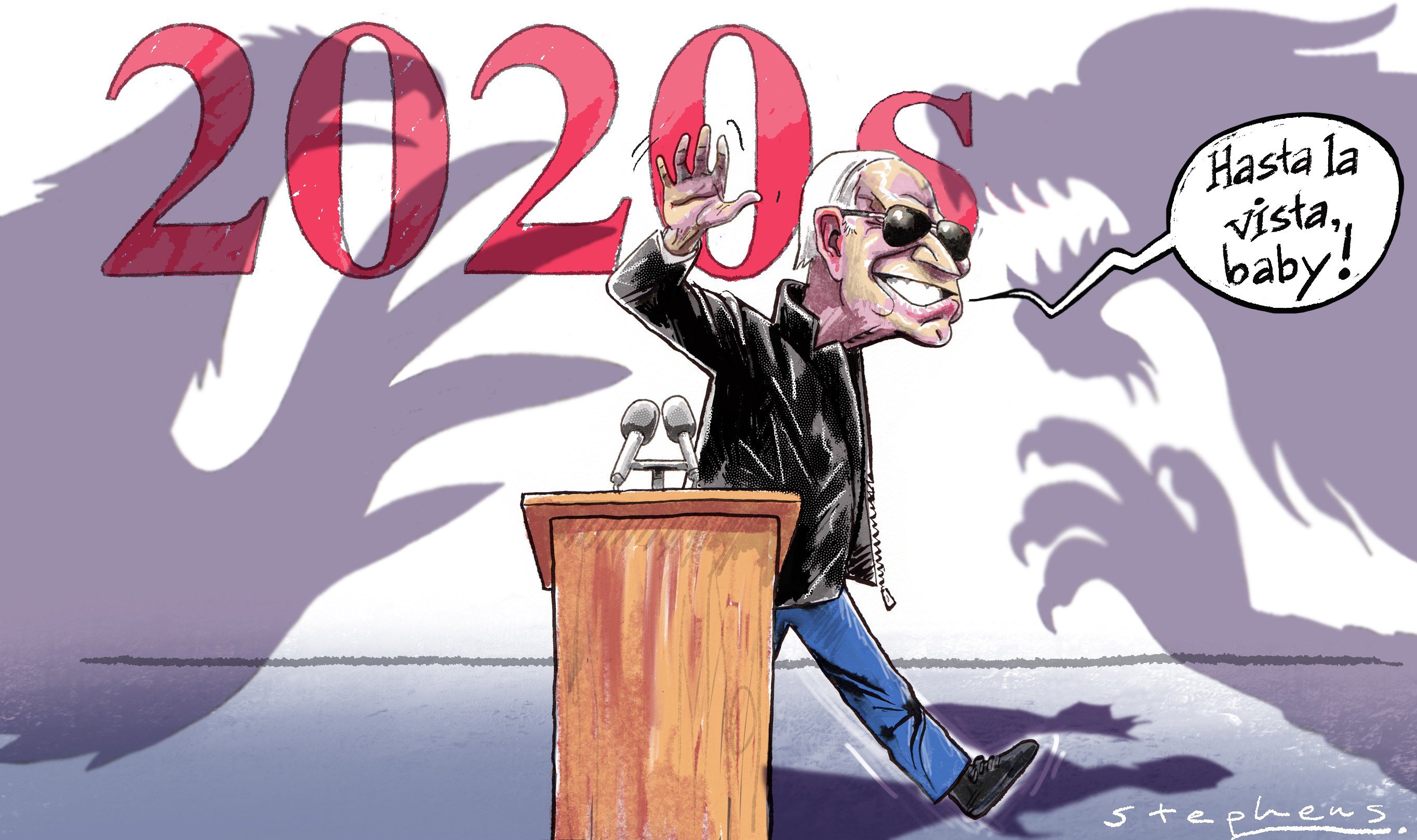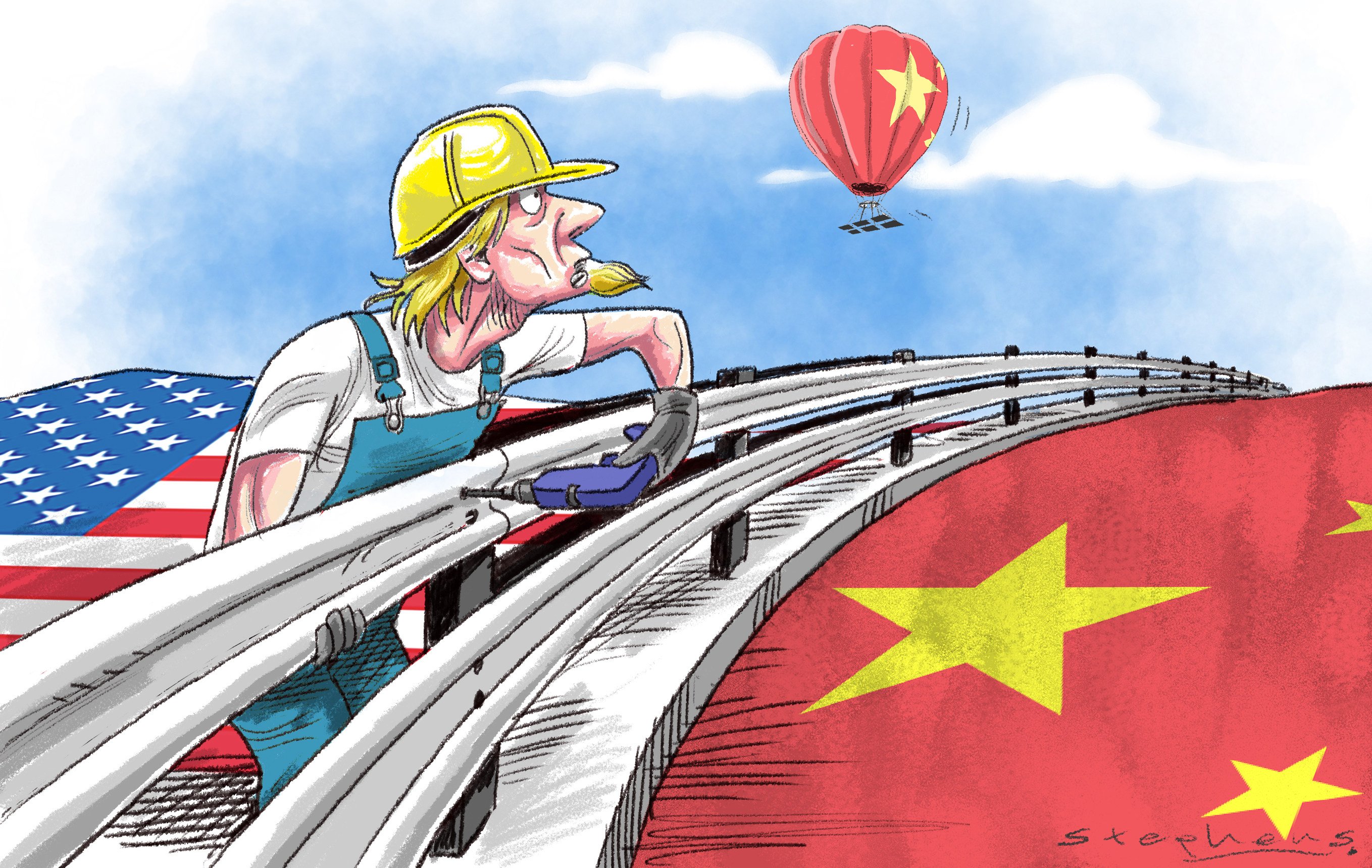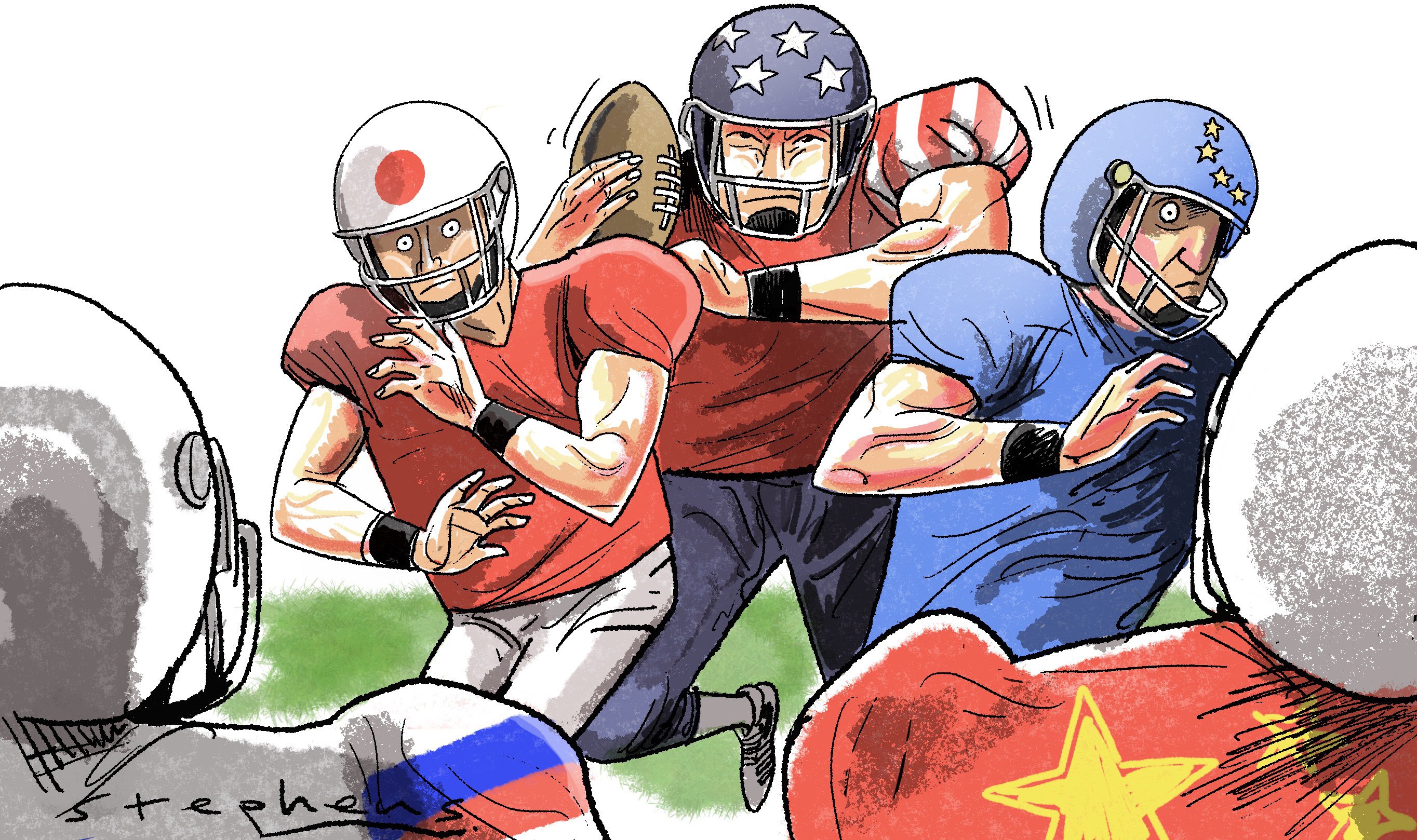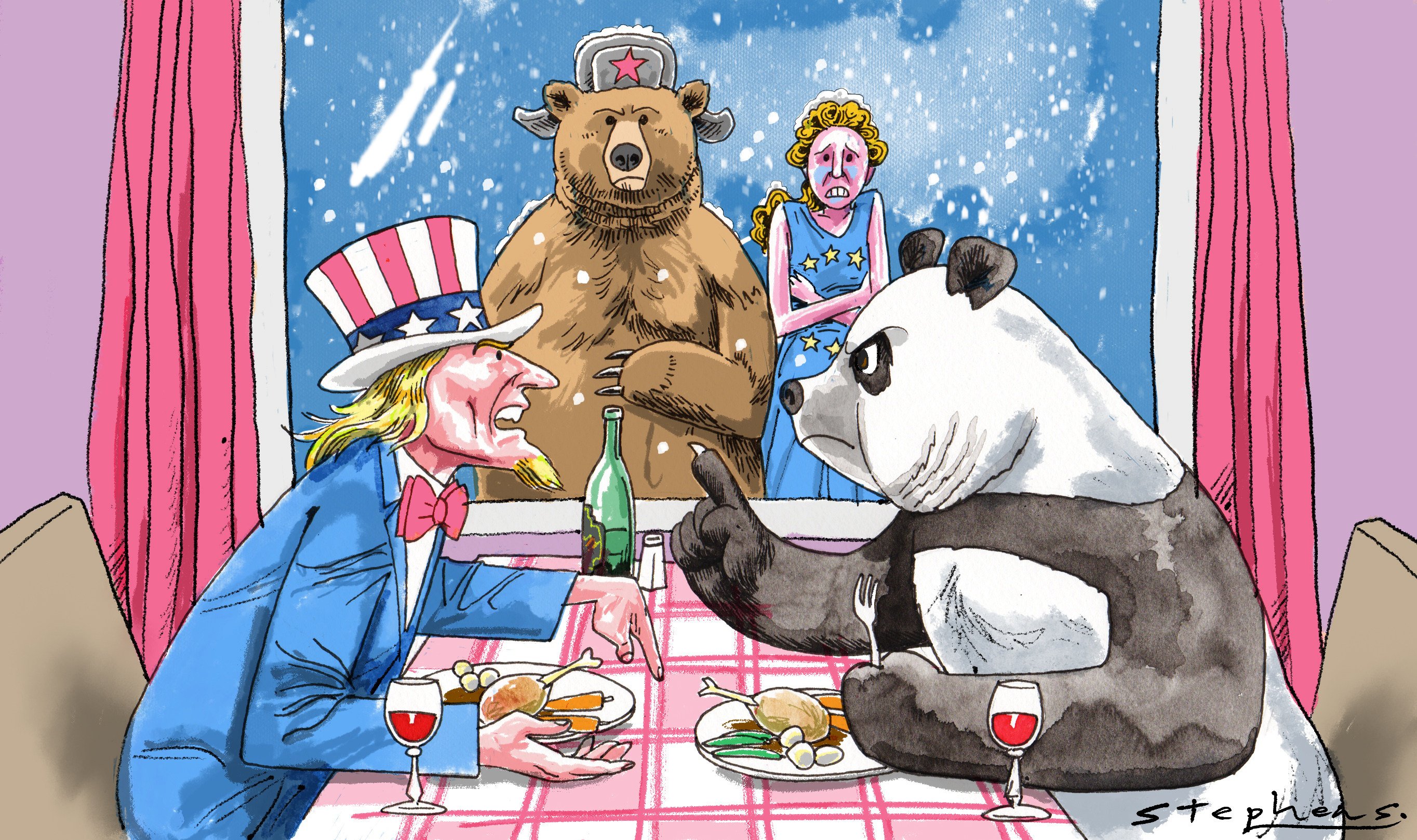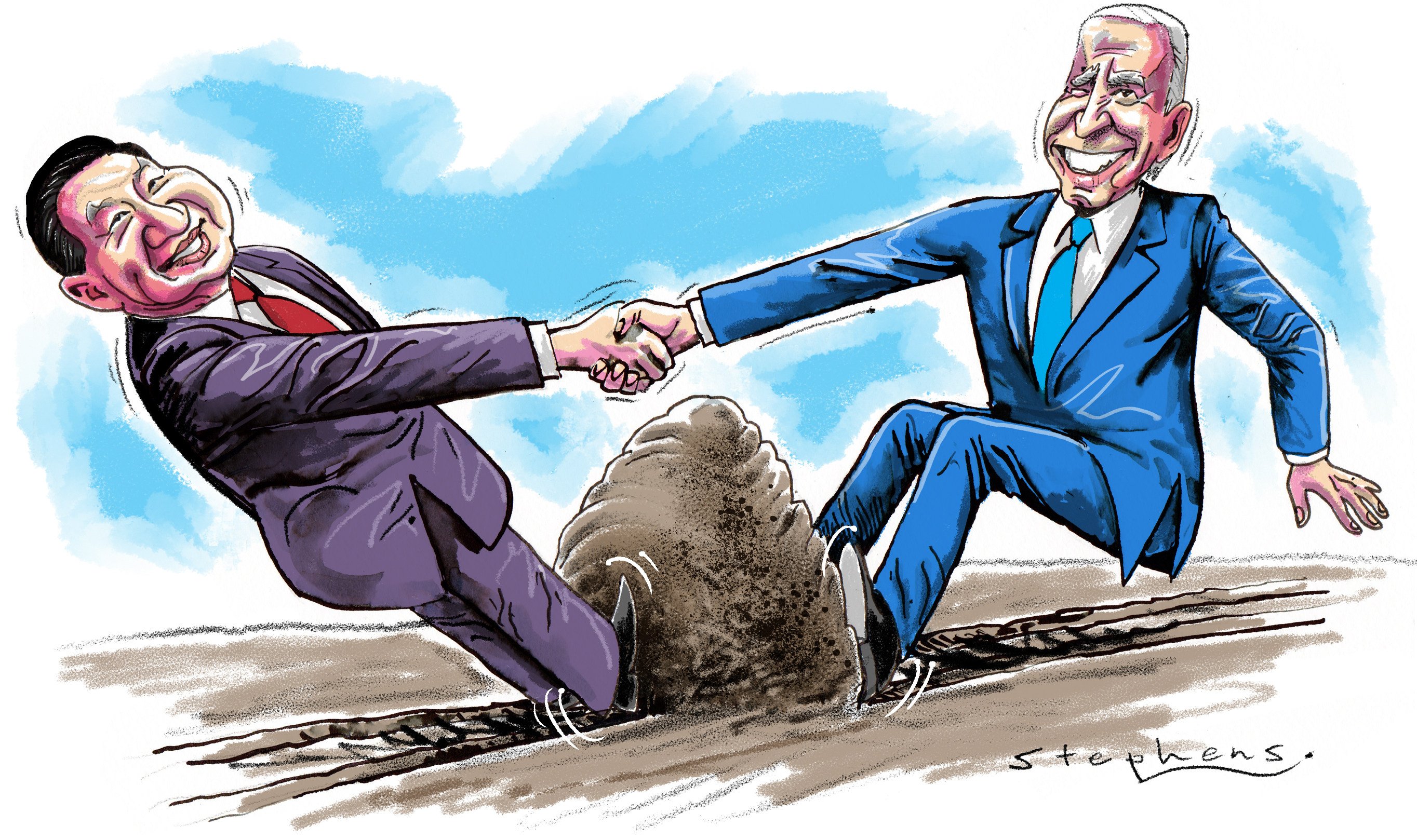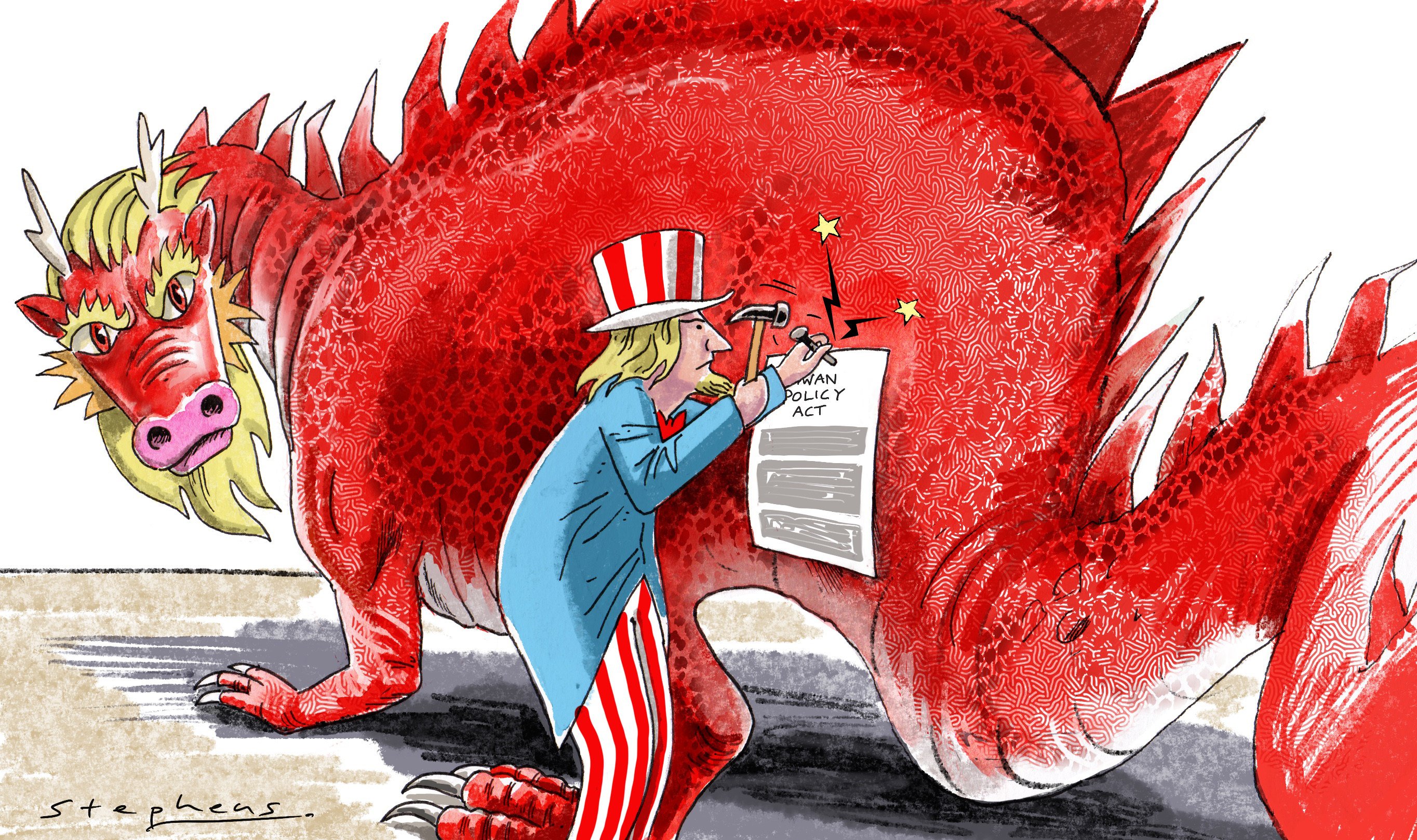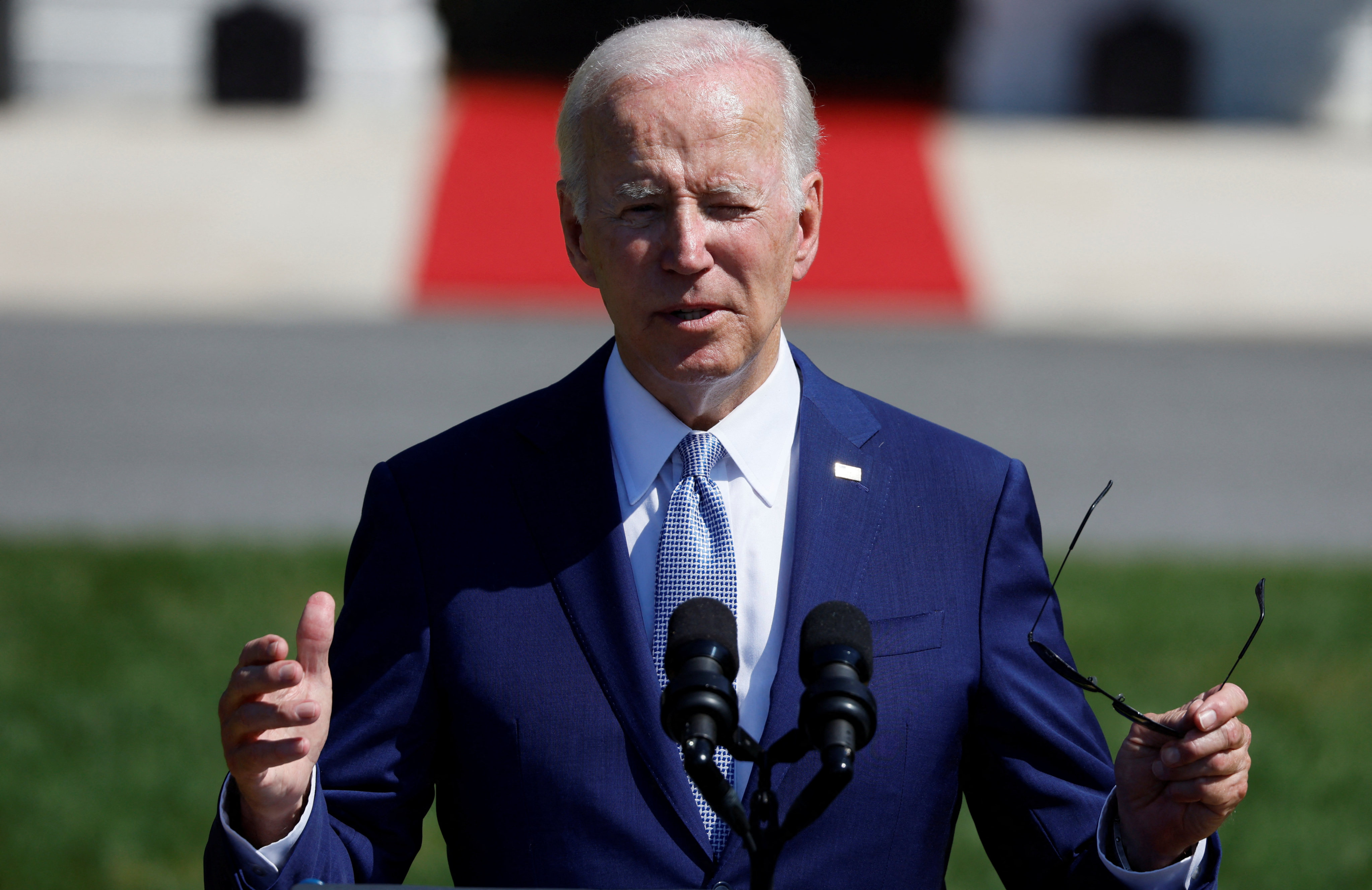Advertisement
Advertisement

Terry Su
Terry Su is president of Lulu Derivation Data Ltd, a Hong Kong-based online publishing house and think tank specialising in geopolitics. Prior to the establishment of Lulu Derivation with his partners in 2019, Mr Su spent more than two decades as an investment banker and senior business executive. From 2003 to 2006, Mr Su was an external member of the Departmental Advisory Committee of the Department of Chinese, Translation and Linguistics at City University of Hong Kong. He has bachelor's degrees in history (1985) and in international politics (1987) from Peking University, and a master of letters degree in international relations (1991) from Oxford University (with Swire Scholarship).
Trump’s plan to wage economic war against China runs the risk of alienating US allies and having no effect on Beijing’s fortunes.
Beijing has room to manoeuvre and stay aloof as it focuses on playing a more responsive game against a belligerent Trump.
Trump’s second term will mark a turn in US foreign policy towards a transactional approach and hasten the start of a multipolar world order.
Any assertion that the US can reverse the trend of Chinese technological proliferation is not a serious argument.
Advertisement
Despite becoming a US peer competitor, China’s practice of strategic forbearance does not point to aspirations of global hegemony.
The diplomatic fallout from Ireland, Norway and Spain recognising a Palestinian state is yet more evidence of a split emerging between the US and Europe. It is still unclear how the Biden administration might respond to France pushing for greater European strategic autonomy, but it is unlikely to look kindly upon it.
The US is pressing China to end its support for Russia, but these efforts are futile as Beijing believes it would be next if and when Moscow is forced to back down. It is time for Washington policymakers to be realistic and start bargaining with China on a fairer basis if they want to achieve any of their aims.
While the US and China settle in for a drawn-out economic war, Europe is unlikely to have the luxury of toughing it out. China makes the goods and the US has the dollar, where does that leave Europe?
A dragged-out war, a boon for the US, will leave Europe drained and weaker as a geopolitical player. In suggesting Western troops in Ukraine, Macron has shone a spotlight on the unviability of Nato’s strategy
Russia’s historical longing to be accepted as a part of Europe may be one reason for Putin’s hesitation to press home his advantage against a US clearly divided and distracted over Ukraine and the Middle East.
Having failed to see Beijing provoked into war over Taiwan or in the South China Sea, America itself has been dragged into war after war in Europe and the Middle East.
The recent uptick in Sino-US relations has been welcomed around the world but, for Japan, the news could be frustrating. Biden and Xi’s warm meeting means Japan must continue to wait patiently if it wants to attain its goal of becoming a ‘normal country’ again.
Joe Biden may well hope a meeting with Xi Jinping can boost his 2024 re-election campaign, given his poll numbers inspire little confidence. China would be wise to take account of the fact the White House could have a new occupant this time next year.
The US miscalculation was to seek to normalise relations between Saudi Arabia and Israel, to counter Beijing’s geopolitical moves in the region. But this forced Hamas into desperate action.
In light of the Russia-North Korea summit and China’s chip breakthrough, it’s unlikely that Beijing can be easily talked into another Biden-Xi meeting. Moreover, given the dictates of the White House’s current foreign policy, what genuine concessions could Biden make to Xi?
With its penchant for tactical pushback, Beijing is surely sending a message with the no-show. Beneath the conciliatory tone of recent visits by US officials, China is letting it be known it will not take US containment lying down.
US success in expanding the breadth of talks with China, despite Beijing’s reluctance, appears to have inspired new-found confidence in Washington. Greater optimism is good news for those hoping the two powers can find a way to compete without resorting to war.
While Beijing has shown its determination to confront the US presence near its border, the reception of Antony Blinken, Elon Musk and Bill Gates suggests China sees a chance to improve relations and sustain its rise.
Former US secretary of state Henry Kissinger was known for working behind the scenes in the interest of peace. High-level talks in Vienna, backchannel meetings in China and nuanced, restrained actions around Taiwan suggest greater understanding between Washington and Beijing is not impossible.
Biden’s administration is talking up ‘a foreign policy for the middle class’, while pushing alliance mechanisms against China and Russia. As a result, Beijing seems to have given up on engaging with Washington, and is focusing on Europe. China and the US can’t go on like this, though.
As Brazil and others take steps towards reducing their dollar reliance, Macron’s controversial remarks about Europe staking its own position on Taiwan, independent of the US, may herald a redrawing of the geopolitical fault lines – if the Ukraine war drags on.
Washington’s policy shift on China, instigated by Trump, has only grown more pronounced under Biden, who has taken pains to shore up US alliances. With the US also threatening Beijing’s red line on Taiwan, retaliation is all but inevitable.
Post-Brexit Britain finds itself in dire economic straits, with crushed delusions of global glory and disappointed hopes of US support. Yet if it seizes this moment to rejoin the EU, it may just find itself welcomed back with open arms.
The incident is just one recent example of Beijing testing Washington’s ‘guardrails’, with Xi also reportedly planning a trip to Moscow. After a number of affronts by the US, including a new chip embargo and a deal with the Philippines to access military bases near Taiwan, China is showing it is capable of turning tough.
Taking a leaf out of Nixon’s book, Biden could drive a wedge between the US’ rivals using conciliation – only this time, with Russia, not China. The problem is that such an approach risks creating an integrated Europe, which may then seek autonomy from the US.
The recent easing of Sino-US tensions may help Washington consolidate its grip on allies as it seeks to carve out a bipolar world order. But, unlike in the Cold War, lesser powers in Europe and Russia are determined to remain at the table, not on the menu.
Even as they work to avert a head-on collision, neither Washington nor Beijing has any illusion about where the other stands. Biden and his administration seem determined to fight it out with China in this ‘decisive decade’ and get their allies onside.
If we are in a second cold war, as some have suggested, Europe could be the first casualty, just as it was during the first Cold War. Europe is in danger of losing its global political identity, becoming even more dependent on the US and risking a slide into untold levels of poverty.
Washington’s plan to upgrade ties with Taiwan, much like Nancy Pelosi’s trip to the island, makes it clear there will be no letup on China. While Beijing is likely to bide its time and continue using salami slicing tactics, if the US tries to ‘Ukrainise’ Taiwan, Washington cannot expect to sit out the ensuing war.
The US president has shown a worrying lack of leadership on scrapping tariffs on China, securing an increase in oil output and Nancy Pelosi’s visit to Taiwan. On his watch, the danger of war between the US and China looms much larger.

